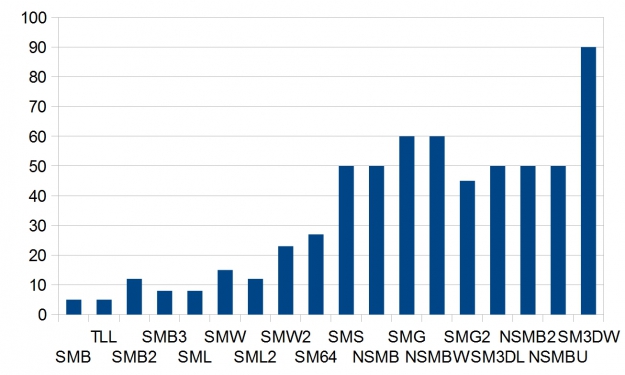Vault Dweller's point rings most true with me, due to my background as a kid in the arcades in the 80s and 90s. The dominance of action games is a key component. Computer games may have been a nerd pastime, but arcade games --and by extension, console games-- were not. If you were in an arcade on any busy day, you would see a mixed clientele: nerds, troublemakers, jocks, metal-heads, gearheads, gangstas, punks, punkettes, joe six pack, etc. Spectacle, lights and movement, it's what first attracts the average person to video games. The immediate physical and technical characteristics of arcade play provided accessibility that Apple 2C and Commodore 64 games did not. It is not surprising that video games that are an extension of the playground and sports, which arcade games were in a way, would appeal to the average person (a lot of geeks tend to overlook or deny the normal human zeal for physical activity) , as we saw back then and again with the Wii.
With every jump in spectacle, the audience grows. People bought Playstation for games like Battle Arena Toshinden, a rather mediocre fighting game and example of 3D graphics. The average person is a graphics whore, basically. This is why games like Final Fantasy 7 and Oblivion become the face of a genre. They don't care about genre, and this I know from first-hand experience. If the game looks impressive, they'll ask about it, seek it out. Skyrim didn't sell 20 million copies to the RPG faithful. I have a friend who still asks about every FF that comes out, even though he doesn't play games and certainly isn't into any form of the RPG genre. He doesn't even play the Final Fantasy games. This kind of thing is not uncommon.
The average person doesn't care about technicalities of difficulty, depth, or complexity. The spectacle comes first. If a game fills that prerequisite, and is not too punishing to them, they'll go along with it. Predictably, video games doubled down along those lines last console generation when the Xbox 360 and PS3 provided even more mainstream spectacle than ever before, closer and closer to a facsimile of film - the dominant art and entertainment of the 20th century- which drew in a new crowd of people who never paid games any attention before and were not ready for or interested in difficult or complex play. The game companies see this and make the correlation between spectacle, audience growth, production cost, and ease of use. They are not blind.
The other feather in the cap of arcade and console games was cost. At 25 cents, the barrier to entry was low. A 200 home machine, while a hefty lump sum compared to feeding credits, was still less expensive than a computer.
If one says that the decline of CRPGs specifically is independent of the console scene, maybe they are right. In hindsight, it looks like a lot of troubled product was being put out in that genre toward the late 90s/early 2000s. Bad sequels to storied franchises, shoddy workmanship, delays, etc. Or maybe computer players got tired of dealing with the quirks of the platform, and figuring games is games, fled to consoles. Or they remained on PC but, like the average entertainment seeker, weren't immune to the immediacy of arcade-like play in the form of your Dooms and Diablos. As a creator, why toil away trying to make something that lives up to your PnP memories when the reward has become so little?
But the decline is a creature with many tendrils, grasping all. Major PC and console development are both affected by the same forces now.






![The Year of Incline [2014] Codex 2014](/forums/smiles/campaign_tags/campaign_incline2014.png)

![Glory to Codexia! [2012] Codex 2012](/forums/smiles/campaign_tags/campaign_slushfund2012.png)



























